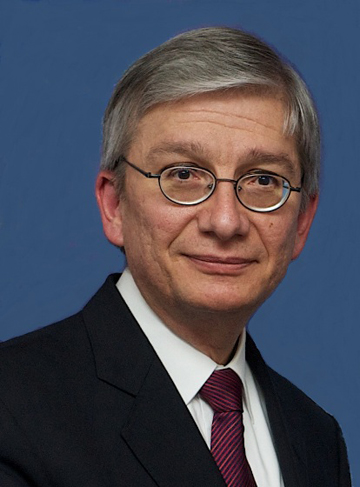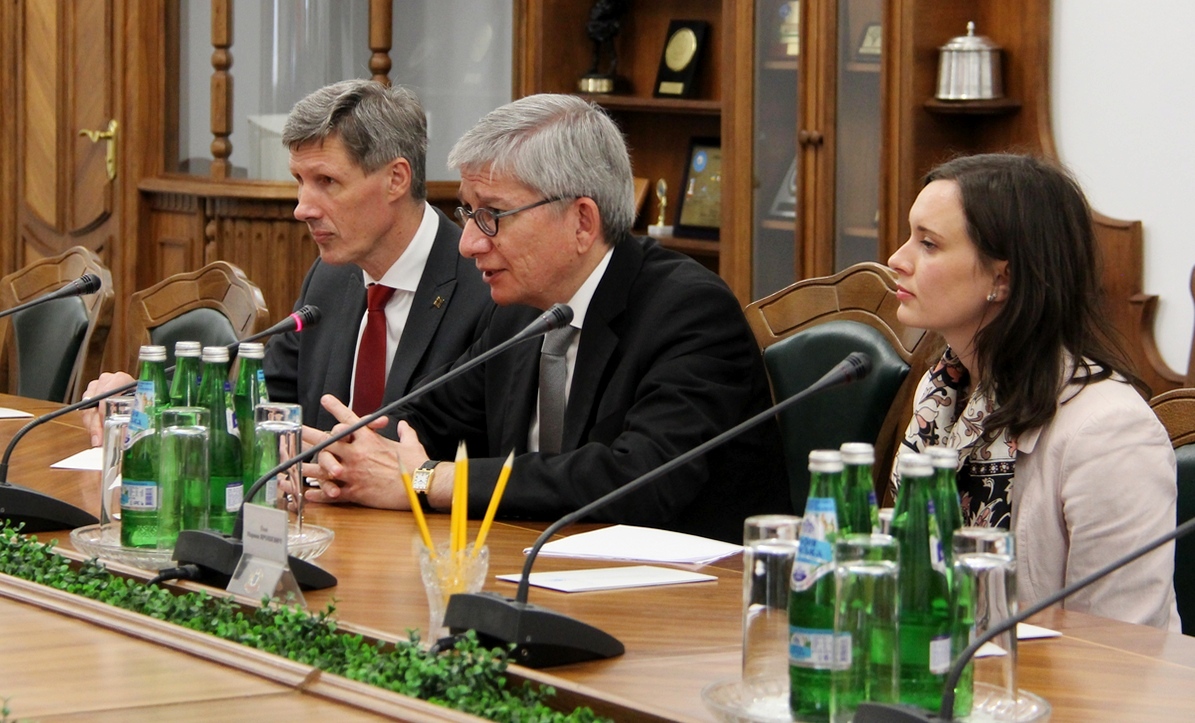The Ukrainian World Congress (UWC) is an umbrella organisation which, by its nature, unites the global Ukrainian community for the attainment of a common goal. Its president visited Serbia and gave the exclusive interview for our magazine.

Canada is known as a place with virtually biggest Ukrainian diaspora in the world. Were the organisations of Canadian Ukrainians a model for organising the other local organisations within UWC?
Our common goal is an independent, prosperous, democratic European Ukraine. Each of the components of the community, including UWC member organisations, have their unique characteristics that are affected by the society in which they work and develop, and as such their structure and activities are unique. It is a fact that the Ukrainian diaspora in Canada is one of the largest and it is also one of the oldest diaspora communities, and due to its long history and many successes over the years, the Ukrainian community in Canada is definitely an excellent example of a successfully organised community – it enjoys a high level of support awareness and understanding among Canadians. However, it is not a model that can be simply replicated in other countries without factoring in the specific characteristics of each country, including governing laws and attitudes of the population.
Presumably the bigger number of Ukrainians in diaspora are from Western Ukraine, right? It would mean “Galician” state of mind and Greek Catholic faith. How do you make balance with the different, and divergent tendencies within the different branches of Ukrainians?
The Ukrainian diaspora today is very diverse and representative of Ukraine as a whole. This factor, in particular, contributes to our strength and success as a global community. Our common goal keeps us focused, consolidated and united in purpose.
How did your work change during different periods? Soviet Union, independent Ukraine?
When the UWC was founded in 1967, our main goal was the restoration of an independent Ukrainian state and the promotion of the interests of Ukrainians wherever they may have resided. At every opportunity and taking advantage of all available means, we highlighted the status of Ukraine within the Soviet Union, fought for its de-colonization and defended the fundamental human rights and freedoms of the numerous Ukrainian political prisoners incarcerated by the occupying regime by organising protest rallies, conferences, producing printed materials and organising petitions, thus raising awareness among high-ranking government officials, international organisations and mass media. These efforts were designed to expose the political repressions of the Soviet authorities and that the Soviet Union was essentially a prison of nations, and, as a result, to be the voice of the Ukrainian people in the international community.
Since the proclamation of Ukraine’s independence in 1991, the goal of the UWC remains the development and consolidation of Ukraine as a sovereign, independent, democratic, European state. Towards this end, the UWC has actively promoted free and fair elections in Ukraine by deploying observer missions for Parliamentary and Presidential elections, highlighted the economic and trade potential of Ukraine internationally, supported the advancement of education, science, and culture of Ukraine, and spearheaded the provision of humanitarian aid to the country as the needs arose.
The UWC also actively supported Ukraine’s democratic and pro-EU aspirations during the 2004 and 2014 revolutions.
Currently, the UWC continues to engage the international community, including high-ranking government officials and international organizations, in defending the territorial integrity of Ukraine threatened by the ongoing hybrid aggression of the Russian Federation, securing the release of unlawfully imprisoned Ukrainian and Crimean Tatar political prisoners, and supporting the reform process in Ukraine and the European aspirations of its people.
What do you do to promote Ukrainian language and culture among diaspora and the people in the world?
The UWC supports its member organisations throughout the world that actively promote the development and preservation of the Ukrainian language and cultural traditions in the countries in which they reside and work. Ukrainian schools and language classes help to ensure the continuation and further development of the Ukrainian language and knowledge of Ukraine, past and present. Communities publish books, newspapers, periodicals and historical research on Ukraine and Ukrainians. UWC member organisations also promote Ukrainian culture in their societies with music, dance and theatre ensembles, concerts, festivals, presentations and workshops.
Do you plan to enlarge the scope of your work with Ukrainian business to be more present in each country where diaspora lives? It is vital, if Ukraine itself is not prosperous, like in Serbia, the people will unfortunately more become members of diaspora themselves. Ukraine-Serbia Free Trade agreement can help a lot
Ukraine’s economic development is critical to its success and we are working to promote Ukraine’s economic potential internationally. In recognition of the importance of economic issues, we struck the UWC Committee for the Economic Development of Ukraine, which has among its objectives the promotion of Ukrainian exports and the encouragement of foreign investment in Ukraine. The UWC also supports the efforts of the Government of Ukraine to implement reforms in the country and create a business-friendly environment. In that context, in 2017 we organized in Kyiv the Inaugural Economic Forum “Supporting the Economic Development of Ukraine: cooperation between Government and the diaspora”, in partnership with the American Chamber of Commerce in Ukraine and Canada-Ukraine Chamber of Commerce. Also in 2017, we launched an initiative for the appointment of Honorary Trade Representatives of Ukraine in countries of the diaspora. Concerning a possible Ukraine-Serbia Free Trade agreement, I think it is a good opportunity to explore and will be one of the action items resulting from my visit to Serbia. I will raise this issue with Ukrainian governing authorities during my next working visit to Ukraine.

FIGHTING CORRUPTION
In that aspect, how do we all battle against corruption to make better societies and can we exchange experiences?
The most effective way to fight corruption is not only by putting corrupt people behind bars, but gradually reducing the space to engage in corrupt practices. The key to battling corruption in any society lies in the entrenchment of democratic principles, including the rule of law and the respect for fundamental freedoms. There will always be some corruption in any society. But as long as civil society is empowered to monitor, praise best practices, expose bad practices, engage in open discussion on the development of the society in which they live and work toward its betterment without repercussions, corruption will not be the victor.